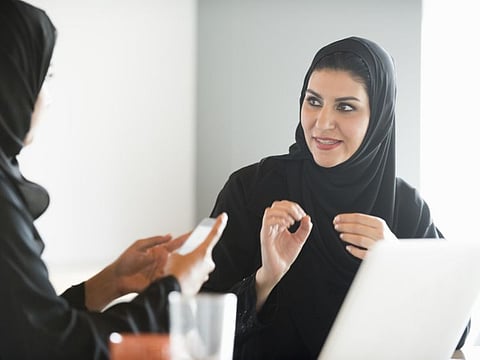Empowering women benefits countries
The UAE model in gender-equality is a model worth emulating

As the Global Women’s Forum Dubai (GWFD) 2020 got underway in Dubai on Sunday, it is important to highlight the significant strides the UAE has achieved along the way, leading the Arab world in most indices related to gender equality, empowerment of women socially and politically and their inclusivity in the workplace.
We live in a world where women bear the brunt of conflicts and displacement. In other places, women continue to be economically and socially marginalised. They continue to represent a small fraction of the workforce and are under-represented politically in many countries.
In the UAE, however, it is a completely different picture. Women today hold 50 per cent of the seats in the Federal National Council, the national legislature, and nine seats in the federal cabinet. Furthermore, women make up 70 per cent of university graduates and up to 66 per cent of the public sector’s workforce and 30 per cent of that number are in leadership roles.
Women represent more than 49 per cent of the population in the Middle East. Sadly only 14 per cent of that number have a full-time job. Such a deficit contributes significantly to the lag in development.Gulf News
These achievements are the result of a strong belief in the role of women as equal partners in building the nation and a sound strategy, developed by the country’s leadership to realise those goals.
What the UAE has done for this fundamental part of its overall development as a modern nation can be looked at as an example to follow. Countries in the Middle East must act now to remove the age-old barriers that led to the marginalisation of women. As the International Monetary Fund (IMF) Managing Director Kristalina Georgieva told the conference on Sunday, by empowering women and including women in public and economic life, the region can add one trillion dollars to its economy annually. That is a lot of wealth and it will help end many of the economic troubles in this region.
Women represent more than 49 per cent of the population in the Middle East. Sadly only 14 per cent of that number have a full-time job. Such a deficit contributes significantly to the lag in development in many of the countries. The region will surely not prosper unless half the society is allowed to take up their rightful place in the economic and political life.
Self-employed women and self-reliant and self-funded female entrepreneurs contribute significantly to the economic cycle in many countries in the region. What is needed today is a clear and effective strategy to empower and support those talents. The region’s future could very well depend on that.



